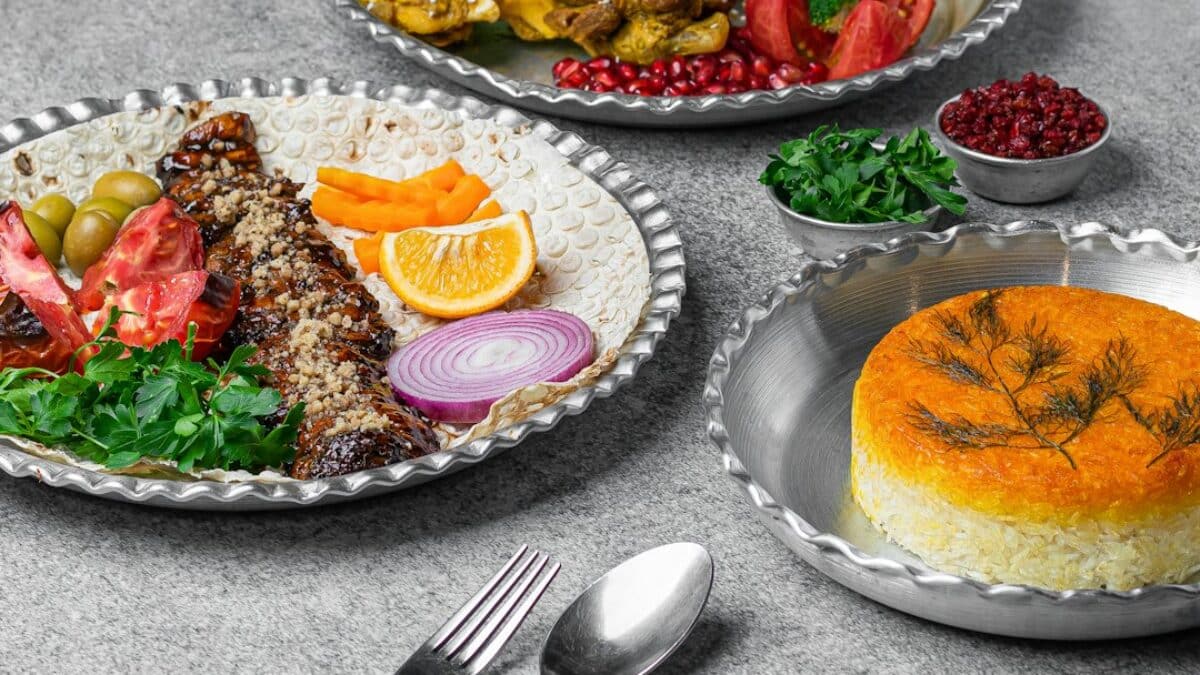Ramadan is more than abstinence from food and drink; it is a 30-day intensive bootcamp for the soul, mind, and body. When approached intentionally, it becomes a rare opportunity to multiply rewards, reset habits, and excel at work without burning out. Yet many people feel they must choose between worship and productivity, resulting in guilt, fatigue, or unfinished tasks. This guide dismantles that false dilemma. You will learn ten evidence-based practices—drawn from the Qur’an & Sunnah, modern science, and real-life case studies—that allow you to maximize worship, sustain professional output, and safeguard health throughout Ramadan and beyond.
Understanding Productivity in the Context of Ramadan
Western models define productivity as “output per unit of time.” Islam refines this definition by adding intention (niyyah) and barakah. A single hour spent in sincere dhikr can outweigh decades of heedless hustle. Therefore, Ramadan productivity is not about doing more tasks but about doing the right tasks with excellence and God-consciousness. The lens shifts from efficiency to effectiveness.
The Ramadan Paradox
Energy dips, hours shrink, and routines flip. Paradoxically, sleep deficits and fasting windows can heighten focus, empathy, and creativity because:
- ghrelin (hunger hormone) increases neuroplasticity, sharpening learning and memory;
- fasting triggers mild autophagy, clearing cellular “junk” and boosting mental clarity;
- night prayers (taraweeh) increase slow-wave sleep quality later in the night.
Key Components of a Highly Productive Ramadan
| Component | Spiritual Dimension | Work Dimension | Well-Being Dimension |
|---|---|---|---|
| Intention | Pure niyyah for Allah | Align tasks with khayr (good) | Reduces decision fatigue |
| Time Blocking | Fixed slots for Qur’an, dhikr | Deep-work sprints post-fajr | Prevents overeating at iftar |
| Nutrition | Sunnah foods: dates, barley | Stable glucose = stable focus | Anti-inflammatory choices |
| Rest | Qaylulah (midday nap) | Prevents afternoon crash | Balances night prayers |
The 10 Proven Tips
1. Pre-Ramadan Priming: 30-Day Head-Start
Just as athletes taper before a marathon, use Sha’ban to taper distractions.
- Audit screen time and delete the top three time-draining apps.
- Gradually shift bedtime 15 minutes earlier every three nights to avoid shock when taraweeh starts.
- Batch-cook and freeze three healthy soups; label them “Week 1, Week 2, Week 3” to avoid iftar panic.
Example: Hassan, a software engineer, began “Ramadan Lite” in Sha’ban: no Netflix after 10 p.m., replaced by 20 minutes of Qur’an recitation. When Ramadan arrived, the habit was already wired, and he gained an extra hour nightly for tahajjud.
2. The 5-Slot Daily Blueprint
Divide your 24-hour cycle into five thematic slots:
- Barakah Block (4:30–6:30 a.m.): fajr, Qur’an memorization, strategic planning.
- Focus Sprint (7:30–11:30 a.m.): cognitively heavy work; caffeine taper; hydrate.
- Recharge & Serve (12–2 p.m.): qaylulah, charity errands, check on relatives.
- Creative Flow (3–5 p.m.): lighter tasks, emails, meetings; sip water every 20 minutes.
- Ritual & Reflection (after iftar): taraweeh, gratitude journaling, prep for next day.
Print the blueprint and tape it near your workstation. Treat it like a flight schedule: slots are non-negotiable but contents are flexible.
3. Qur’an-Anchored Planning
Instead of generic to-do lists, derive daily priorities from the juz you recite each morning. After fajr, read the translation of the day’s pages. Extract one actionable insight (e.g., verse on honesty → reconcile pending accounts). This integrative learning turns worship into a productivity engine.
4. Strategic Nutrition for Sustained Energy
Suhoor Framework
- Slow carbs: steel-cut oats + chia seeds → 4-hour glucose curve.
- Protein & healthy fat: 2 boiled eggs + avocado → satiety hormone boost.
- Hydration multiplier: 500 ml water with pinch of pink salt and squeeze of lemon.
Iftar Refuel
- 3 dates + 250 ml water (sunna & glycogen spike).
- 15-minute maghrib prayer → allows insulin to stabilize.
- Balanced plate: ½ vegetables, ¼ lean protein, ¼ complex carbs.
Avoid the “fried-food coma” that sabotages taraweeh focus.
5. Tech Fasting & Digital Sprints
Every notification hijacks dopamine. Use the “Fast & Feast” method:
- Fast: phone is set to Do Not Disturb during Barakah and Focus Blocks.
- Feast: during Creative Flow, batch-reply to messages in a 30-minute digital feast.
Apps like Forest or Focus To-Do gamify abstinence; pair them with dhikr counters to reinforce spiritual mindfulness.
6. Power Naps & Sleep Hacking
A 20-minute qaylulah between dhuhr and asr can equal 90 minutes of night sleep in cognitive restoration. Post-taraweeh, employ the 90-minute rule:
- Sleep in multiples of 1.5 hours (3, 4.5, 6).
- Use a sunrise alarm clock to simulate natural dawn.
- Keep a bottle of water by the bed to hydrate immediately upon waking for suhoor.
7. Workplace Negotiations & Boundaries
Two weeks before Ramadan, schedule a “Ramadan Briefing” with your manager:
- Present a shifted timetable (e.g., 7 a.m.–3 p.m.) tied to measurable deliverables.
- Offer to cover critical deadlines before Maghrib when focus peaks.
- Use Outcome-Based Metrics (KPIs) rather than hours to measure productivity, reducing micromanagement.
Example script: “Over the last quarter, 80 % of my tasks were delivered ahead of schedule. I propose condensed hours in Ramadan to maintain quality while honoring my spiritual obligations.”
8. Spiritual Cue Stacking
Pair mundane activities with dhikr to stack spiritual micro-rewards:
| Daily Trigger | Micro-Dhikr | Expected Reward |
|---|---|---|
| Boiling kettle for tea | Recite salawat 10x | Heart tranquility; 70 angels invoke mercy. |
| Red traffic light | Astaghfirullah 3x | Stress reset; sins erased. |
| Laptop startup | Bismillah + intention | Barakah in workflow. |
By the end of Ramadan, you will have logged thousands of effortless adhkar, building a neuro-associative pathway between worldly tasks and worship.
9. Community Micro-Projects
Productivity multiplies when collective. Launch “30 Good Deeds” on your WhatsApp group:
- Each member commits to one daily act (feed a fasting person, sponsor Qur’an printing, etc.).
- Use a shared Google Sheet to tick off deeds; visual progress sustains momentum.
- End of Ramadan: export the sheet as a gratitude poster for everyone’s home.
This social accountability loop boosts both worship and morale at work (“my team just funded 500 iftar meals!”).
10. Post-Iftar Reflection Ritual
Reserve 10 minutes before taraweeh for a three-step review:
- Gratitude Scan: list three Ramadan gifts you noticed today.
- Metrics Check: Qur’an pages read, water intake, deep-work hours.
- Adjustment Note: one tweak for tomorrow (e.g., “carry dates in car for traffic delays”).
Journaling consolidates learning and prevents the common “where did Ramadan go?” amnesia.
Benefits and Importance
Spiritual Gains
Employing these tips yields khushoo’ concentration, consistent Qur’an completion, and heightened taqwa—the ultimate Ramadan KPI.
Professional Advantages
- Compressed Work Windows create urgency-driven focus, raising output quality.
- Fasting demonstrates discipline to supervisors, often leading to promotion discussions post-Ramadan.
Health Outcomes
Metabolic flexibility, reduced inflammation, and improved insulin sensitivity can persist for months, providing a longevity dividend far beyond Ramadan.
Practical Applications & Real-Life Case Studies
Case Study 1: Aisha, Remote Marketing Manager & Mother of Three
Challenge: homeschooling, client calls, night prayers.
Solution:
- Pre-Ramadan freezer prep saved 45 minutes nightly.
- Used Focus Blocks at 5 a.m. while kids slept.
- Micro-dhikr during laundry: finished Qur’an twice and closed Q2 sales 12 % above target.
Case Study 2: Bilal, ICU Nurse on 12-Hour Shifts
Challenge: dehydration risk, irregular breaks.
Solution:
- Negotiated split shift (6 a.m.–12 p.m.) with Ramadan clause in contract.
- Used electrolyte-rich suhoor (chia + coconut water).
- Led a hospital iftar fund for night staff, boosting morale and reducing turnover.
Quick-Start Checklist
- Download a Ramadan planner template (Google Sheets).
- Schedule the Ramadan Briefing at work this week.
- Print the 5-Slot Daily Blueprint and pin it above your desk.
- Join or create one WhatsApp group for the “30 Good Deeds” challenge.
Frequently Asked Questions
What if my employer refuses to adjust my schedule for Ramadan?
Document your request in writing, citing reasonable accommodation laws (e.g., Title VII in the US, Equality Act 2010 in the UK). Offer alternative
























Post Comment